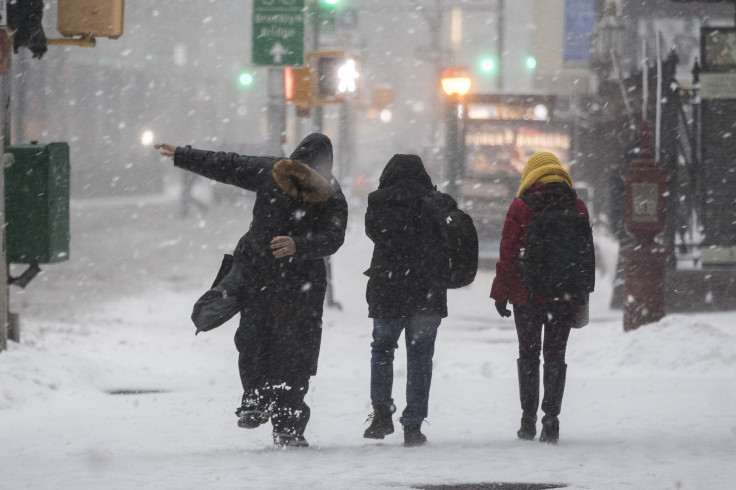Does Global Warming Cause Snowstorms? Weather Like Stella Enhanced By Climate Change

Winter Storm Stella bore down on much of the United States Tuesday, begging the question: What does a snowstorm in March mean for global warming? While it might seem easy to discount the latter because of the discontinuity between the two phrases — snow and warming don’t seem to go together — the changing climate can actually exacerbate extreme weather events like snowstorms in March.
Some point to snow and freezing weather as proof that global warming isn’t occurring. While snowstorms like Stella aren’t directly caused by a changing climate, global warming does cause hotter air. Hotter air, in turn, holds more moisture than colder air, causing heavier precipitation that comes in the form of extreme rain or snow.
Read: Why Wasn't Winter Colder? Record Warm Temperatures Hit U.S. In 2017
As a result, the amount of rain or snow falling in the heaviest 1 percent of storms has increased over the last half century, according to the Union of Concern Scientists. Some areas have recorded up to a 71 percent increase in the amount of precipitation that has fallen in the heaviest storms between 1958 and 2012.

Warming oceans as a result of climate change can impact weather events, as well. Nor’easters like Stella, or storms that bring heavy rain and snow to the Northeast, are caused by a collision of cold air and warm waters, so increasing temperatures likely have an effect.
Read: Ocean Temperatures Rising Faster Than Previously Thought
“The U.N. Intergovernmental Panel on Climate Change has found that nor’easter like this one may grow stronger [with human-caused climate change, as they are driven by the contrast between cold Arctic air masses and ever-warming ocean surface temperatures,” Penn State climatologist Michael Mann told the Washington Post in 2015 while discussing that year’s blizzard. “We also know that ocean surface temperatures off the U.S. East Coast right now are unusually warm, and there is no doubt that a component of that anomalous warmth is due to human-caused climate change. Those warm ocean temperatures also mean that there is more moisture in the air for this storm to feed on and to produce huge snowfalls inland.”
When referring to weather events and global warming, scientists emphasize the difference between climate and weather. Weather refers to short-term conditions in the atmosphere, while climate, according to NASA, is how the atmosphere behaves over longer periods of time.
© Copyright IBTimes 2024. All rights reserved.






















